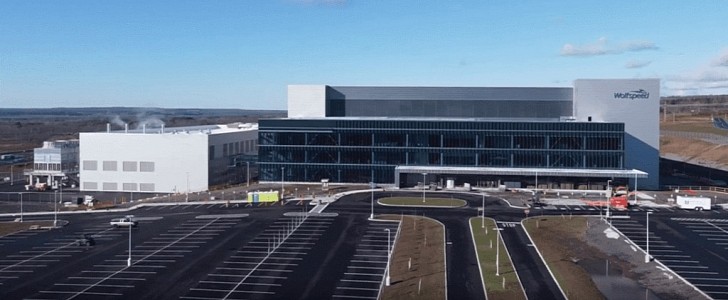While the entire world in general, and the car industry in particular, continues to struggle with the constrained semiconductor industry, chip makers out there are looking for ways to boost their production and make the most of the strong demand for their products.
Wolfspeed, which is known mostly for its silicon carbide semiconductors, has recently announced a massive investment in a new manufacturing facility in the United States.
Silicon carbide microchips are used for electric vehicles, and their main benefit, which is only possible thanks to the new materials, is that they allow for higher voltages with a lower power footprint. In other words, they are among the most efficient microchips currently out there, so it’s no surprise that industry experts see silicon carbide chips as the future of EV semiconductors.
Wolfspeed will therefore set up a new silicon carbide plant in Chatham County, with the company planning to complete the first phase of the construction in 2024. The facility is then projected to become operational by the end of the decade.
In a press release, also embedded below, the chip maker says the new facility will produce 200mm silicon carbide wafers that will then be sent to the Mohawk Valley Fab.
The company says the investment will reach $1.3 billion for the first phase alone, but at the same time, Wolfspeed already intends to apply for federal funding under the CHIPS act in the United States.
When the facility will be up and running, it will employ some 1,800 people, Wolfspeed guarantees.
In the meantime, the chip shortage is here to stay, with more and more carmakers acknowledging the disruptions that it still causes in their daily operations. The consensus right now is that the crisis will continue throughout 2023, with 2024 now expected to bring more substantial signs of recovery, possibly when the investment in expanded capacity comes to fruition.
Silicon carbide microchips are used for electric vehicles, and their main benefit, which is only possible thanks to the new materials, is that they allow for higher voltages with a lower power footprint. In other words, they are among the most efficient microchips currently out there, so it’s no surprise that industry experts see silicon carbide chips as the future of EV semiconductors.
Wolfspeed will therefore set up a new silicon carbide plant in Chatham County, with the company planning to complete the first phase of the construction in 2024. The facility is then projected to become operational by the end of the decade.
In a press release, also embedded below, the chip maker says the new facility will produce 200mm silicon carbide wafers that will then be sent to the Mohawk Valley Fab.
The company says the investment will reach $1.3 billion for the first phase alone, but at the same time, Wolfspeed already intends to apply for federal funding under the CHIPS act in the United States.
When the facility will be up and running, it will employ some 1,800 people, Wolfspeed guarantees.
In the meantime, the chip shortage is here to stay, with more and more carmakers acknowledging the disruptions that it still causes in their daily operations. The consensus right now is that the crisis will continue throughout 2023, with 2024 now expected to bring more substantial signs of recovery, possibly when the investment in expanded capacity comes to fruition.

